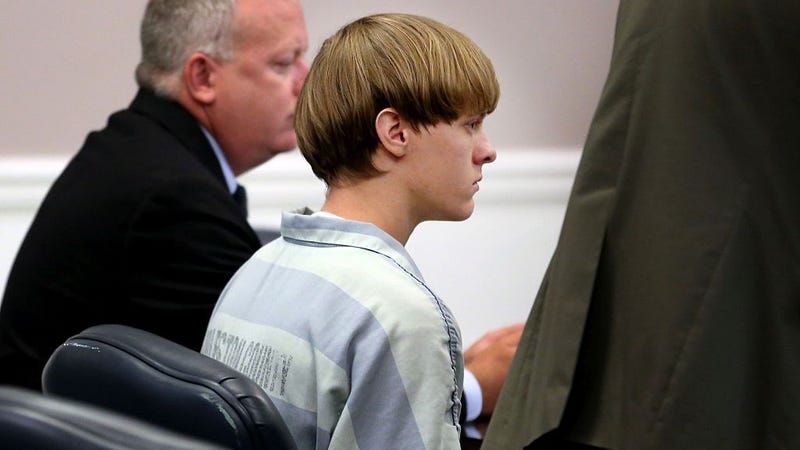
Convicted Charleston church shooter Dylann Roof's attorneys are taking their appeal to the U.S. Supreme Court to make a decision on how to handle the ongoing disagreements over mental-illness related evidence between capital defenders and attorneys.
Roof was convicted in federal court in December of 2016 for the 2015 shooting at the Emanuel African Methodist Episcopal Church in Charleston, South Carolina where he killed nine Black people. He was found guilty on all 33 federal charges against him and was later sentenced to death.
Roof elected to represent himself and fire his legal team during the sentencing phase of his death penalty trial in an attempt to prevent jurors from hearing evidence of any mental illness.
His appellate team filed a petition last month with the Supreme Court, asking "When a capital defendant who has been ruled competent to stand trial and his attorneys 'disagree on whether to present mitigating evidence depicting him as mentally ill, who gets the final say?'" according to the Associated Press.
They said that assistance from Supreme Court justices is "needed to resolve a deep divide among the lower courts over who — client or lawyer — gets to decide whether mitigation evidence will be introduced at a capital penalty hearing."
Roof's attorneys said in the petition that he made he choice to represent himself "after the district court told him that counsel could introduce evidence depicting him as mentally ill over his objection.”
His attorneys have argued how cases involving self-representation have been handled in the 4th U.S. Circuit Court of Appeals versus other courts. They argued, "Had Roof been tried in any one of those majority jurisdictions, he would not have been forced to self-represent at his capital trial to block his own attorneys from presenting evidence he abhorred."
In August 2021, the 4th Circuit rejected Roof's appeal, upholding the death sentence. They said that "his crimes qualify him for the harshest penalty that a just society can impose."
He was then denied the request for a new hearing after all of the judges from the 4th Circuit recused themselves from hearing his case, and also denied the request to reconsider its recusal.
The Supreme Court must respond to Roof's request by the end of the month.


